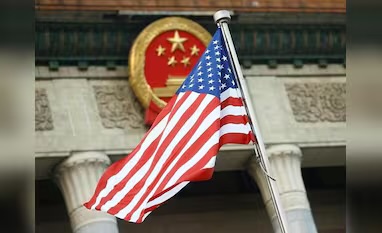The United States has tightened its grip on trade networks linked to the Houthi and Hezbollah group in Yemen and Lebanon. The US Treasury Department announced on Thursday a new wave of sanctions, aiming to disrupt the flow of funds that support these groups. By targeting companies, individuals, and ships accused of transporting Iranian commodities, the US seeks to hinder the operations of these organizations.
The Treasury Department revealed that the sanctions were directed at entities involved in shipping Iranian oil and liquefied petroleum gas (LPG) to Yemen and the United Arab Emirates. These shipments are said to be coordinated by a financial network linked to a Houthi official, who allegedly uses the revenue to fund attacks on shipping routes in the Red Sea. Such attacks have caused significant disruptions to global trade, especially in Asia and Europe, leading to higher freight costs and port congestion.
Impact on Hezbollah’s Global Operations
In addition to the Houthi networks, the sanctions also targeted Hezbollah, a group known for its extensive influence and operations across the Middle East and beyond. The US Treasury singled out Hezbollah’s LPG shipments, which involved a Hong Kong-based ship manager and several tankers. The sanctioned parties were accused of transporting LPG worth tens of millions of dollars from Iran to China, with the revenue presumably fueling Hezbollah’s activities.
Hezbollah, an Iranian-backed militant organization, has long been under the scrutiny of the US government due to its involvement in various conflicts and its links to terrorism. By targeting its financial lifelines, the US aims to cut off the resources that Hezbollah uses to maintain its operations.
The Talaqi Group, a Hezbollah-controlled company, was highlighted in the sanctions for using tankers to facilitate the shipment of Iranian LPG, further underscoring the complex global network that sustains the group.
Cracking Down on Houthi Oil: U.S. Imposes Fresh Sanctions on Indian, Hong Kong Based Facilitators
Consequences for Houthi and Hezbollah
The newly imposed sanctions have serious consequences for those involved. The assets of the targeted individuals and entities in the United States will be frozen, and American citizens and businesses are generally prohibited from engaging in transactions with them. Additionally, financial institutions that facilitate certain transactions with these sanctioned parties also risk being penalized.
Hezbollah Leader Hassan Nasrallah Issues Warning to Cyprus Amid Rising Tensions with Israel
The US Treasury’s Acting Under Secretary for Terrorism and Financial Intelligence, Bradley Smith, emphasized the US government’s resolve in combating the financial networks that support groups like the Houthis and Hezbollah. According to Smith, the sanctions are a clear message to those who seek to fund destabilizing activities in the Middle East and beyond: they will face accountability and severe repercussions.
Le Point Report Exposes Hezbollah Money Laundering Network
United States has once again taken decisive action after adding ARTURA to its designated list and its likely disrupt the financial networks of groups it deems as threats to global stability.
ARTURA was responsible for shipping commodities for Sa’id al-Jamal, to reflect the changing of its name to OHAR
By targeting the trade of Iranian oil and LPG, the US aims to cut off the funding streams that allow the Houthi and Hezbollah to continue their activities. The impact of these sanctions will likely be felt across the Middle East, affecting not only the targeted groups but also the broader geopolitical landscape. However, as these are ongoing actions, the focus remains strictly on the current sanctions and their immediate implications, without delving into future speculations or outcomes.
You can check the Treasury website for further information on Sanctions on Houthi and Hezbollah


